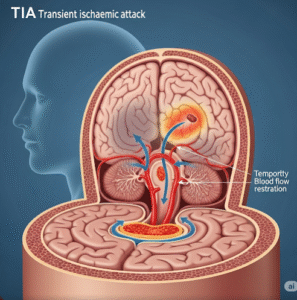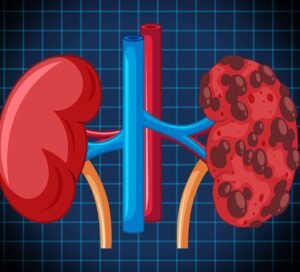➤ Overview
Terminal lucidity is a fascinating and rare phenomenon observed in patients who are near the end of life, characterized by a sudden return of mental clarity, coherent speech, or purposeful behavior after a period of confusion, delirium, or unresponsiveness. This temporary clarity may last from minutes to hours and can provide a meaningful window for communication with loved ones.
In South Korea, terminal lucidity is recognized in hospice and palliative care settings. While it does not alter prognosis, understanding and supporting this phenomenon allows patients and families to experience emotional closure and connection during the final stages of life.
➤ Key Facts
→ Terminal lucidity is observed in patients with advanced neurological diseases, dementia, or terminal illnesses.
→ It is usually brief, lasting from a few minutes to a few hours.
→ Patients may suddenly demonstrate coherent speech, memory recall, or purposeful interactions.
→ The phenomenon has been reported in Alzheimer’s disease, Parkinson’s disease, and other neurodegenerative conditions.
→ In Korea, hospice teams use terminal lucidity to facilitate emotional closure and meaningful communication.
→ Terminal lucidity is not predictive of recovery; it occurs shortly before death.
→ Families often describe it as a spiritual or emotionally significant experience.
➤ What is Terminal Lucidity?
Terminal lucidity is defined as an unexpected improvement in cognitive function and awareness shortly before death:
→ Sudden clarity – Patients previously confused may speak clearly and answer questions accurately.
→ Purposeful interaction – Ability to communicate needs, express feelings, or recognize loved ones.
→ Memory recall – Patients may remember personal details, family members, or past events.
→ Emotional expression – Displaying joy, gratitude, or closure.
→ Behavioral improvement – Reduced agitation or purposeful movement in bedridden patients.
In South Korea, hospice and palliative care professionals observe and document episodes to provide supportive care and emotional guidance for families.
➤ What Symptoms are Related to Terminal Lucidity?
Terminal lucidity often occurs in the context of end-stage illness with prior cognitive decline or delirium:
→ Previous confusion or delirium → Sudden contrast with newfound clarity.
→ Communication ability → Coherent speech, responding to questions, or expressing emotions.
→ Alertness → Awareness of surroundings and recognition of family members.
→ Calm behavior → Reduced restlessness or agitation.
→ Memory recall → Access to personal history, names, and events.
→ Emotional expression → Joy, laughter, or tearful moments of connection.
→ Brief duration → Episodes may last minutes to hours before decline resumes.
→ Spiritual or existential engagement → Discussing wishes, forgiveness, or farewells.
→ Physical responsiveness – Sitting up, holding hands, or gesturing.
➤ What Causes / Possible Causes?
The exact mechanisms of terminal lucidity are not fully understood, but several theories exist:
→ Neurological changes – Temporary restoration of synaptic function or neuronal communication.
→ Metabolic factors – Fluctuations in oxygen, blood glucose, or other biochemical processes.
→ Medication withdrawal or adjustment – Reduction in sedatives or analgesics may allow temporary clarity.
→ Psychological or emotional triggers – Familiar presence of loved ones or meaningful interaction.
→ Brain reserve – Some patients retain latent cognitive function despite extensive neurodegeneration.
→ Spiritual or phenomenological explanations – Cultural or religious interpretations as a meaningful final experience.
In South Korea, research on terminal lucidity is emerging, with observational studies and hospice documentation improving understanding of this phenomenon.
➤ When Should I See My Doctor?
Terminal lucidity is not a pathological emergency, but healthcare providers should be informed if:
→ Sudden changes in alertness occur in terminally ill patients.
→ Families seek guidance on interacting safely and meaningfully during episodes.
→ There are concerns about agitation, pain, or other end-of-life symptoms accompanying lucidity.
→ Episodes are unexpected in patients receiving palliative medications, requiring review of medication balance.
→ Families desire support for emotional closure, communication, and end-of-life planning.
Hospice and palliative care professionals in Korea provide guidance for maximizing comfort and meaningful interaction during terminal lucidity.
➤ Care and Treatment
Management of terminal lucidity focuses on support, comfort, and emotional connection:
→ Family presence – Encourage loved ones to interact and communicate.
→ Gentle support – Handholding, eye contact, and verbal reassurance.
→ Symptom management – Ensure comfort, pain control, and reduction of agitation.
→ Recording memories – Video, audio, or written notes to preserve meaningful interactions.
→ Respect patient wishes – Allow expression of final messages, forgiveness, or gratitude.
→ Psychological support – Counseling for families to process the emotional impact.
→ Environment adjustments – Quiet, familiar surroundings to enhance patient comfort.
→ Spiritual care – Chaplain or culturally appropriate rituals for emotional closure.
➤ Treatment Options in Korea
South Korea provides specialized palliative and hospice care for patients experiencing terminal lucidity:
Observation and Assessment in Korea
→ Hospice staff monitor cognitive, emotional, and physical changes in end-stage patients.
→ Documentation helps understand patterns and provide family guidance.
→ Multidisciplinary teams collaborate with nurses, social workers, and spiritual counselors.
Medical Treatments in Korea
→ Focus on comfort, symptom control, and emotional support rather than altering prognosis.
→ Adjustments of sedatives or analgesics to allow patient engagement without causing distress.
→ Pain and symptom management to maintain physical comfort during lucid episodes.
Advanced Therapies in Korea
→ Integration of psychological counseling, music therapy, and memory support activities.
→ Hospice programs offer family education and 24/7 guidance during final days.
→ Use of tele-hospice services to connect distant family members during lucid moments.
Rehabilitation & Support in Korea
→ Education for families on maximizing meaningful interactions.
→ Emotional and spiritual support for patients and families during the dying process.
→ Follow-up support for bereavement and processing terminal lucidity experiences.












